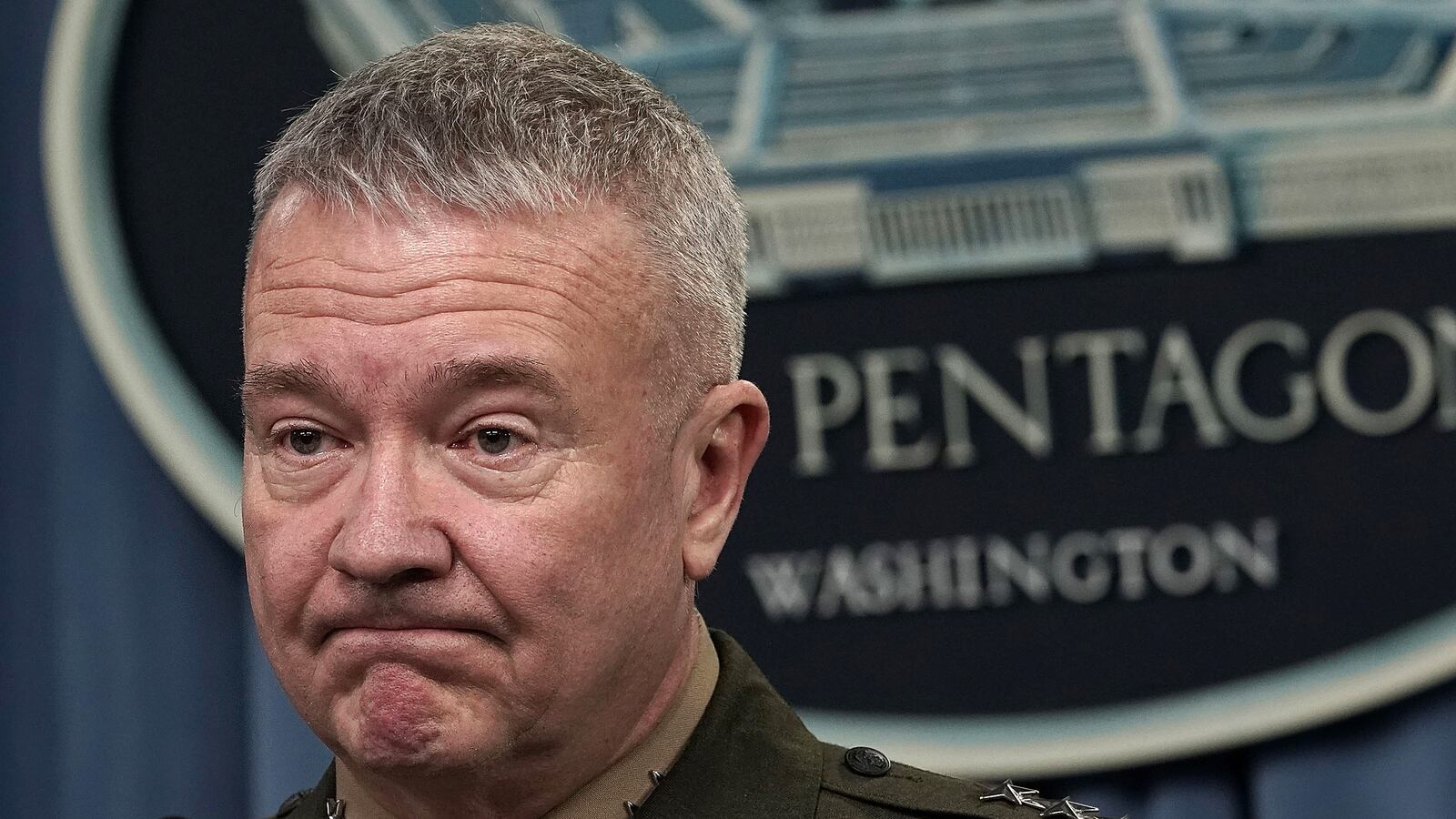Almost as soon as Donald Trump declared “mission accomplished” in Syria, the Pentagon dialed the claim back substantially.
In reviewing the Pentagon’s assessment of what U.S. warplanes and cruise missiles did last night to three suspected chemical storage and production facilities, U.S. defense representatives defined success in the most tactical of terms. That formulation resolved none of the relevant questions over the ultimate impact of a strike that Trump ordered after a substantially similar one last year failed to deter Bashar Assad from launching a chemical attack.
But the Pentagon claimed tactical success. Unlike last year’s 59-Tomahawk-missile fusillade, no Tomahawks malfunctioned. Syria’s vaunted air defenses along the Mediterranean coast failed to shoot down any U.S. hardware, despite Russian claims of interception. (Though, for good measure, the U.S. launched most of Friday’s Tomahawks from ships in the Red Sea and Persian Gulf, and its B-1 bombers fired missiles with a 620-mile range.) Most of the 40 Syrian interceptor missiles launched after the U.S. cruise missiles had already struck their targets. And a threat from a Russian diplomat to target American ships proved empty.
“We met our objectives,” said Pentagon spokeswoman Dana White, pressed on the president’s proclamation. “It was mission accomplished.”
But the objective of the mission wasn’t to hit three Syrian chemical sites in and of themselves. It was, like last year’s strike on the Shayrat airfield, to deter Assad from future chemical attacks. And that depends on calculations that last night’s strike won’t resolve. Last year, for instance, Assad held off chemical attacks for a whole three months – resuming them, conspicuously, after Trump and his then-secretary of state signaled that they would work with Russia on a political resolution to the Syrian civil war and back away from a demand Assad relinquish power.
“We did the same strike last year,” said Rep. Eric Swalwell, a California Democrat on the intelligence committee. “He still used chemical weapons on his own people. Why would this be different?”
Assad retains the capability to do so, the Pentagon conceded. While White said Assad’s ability to produce a chemical arsenal was “crippled,” her Joint Staff colleague, Lt. Gen. Frank McKenzie acknowledged, “I would not say they’d be unable to conduct a chemical attack in the future.” The strikes, McKenzie added, ought to make Assad “think twice” before doing so.
That calculation remains outside the U.S.’ control. Assad’s hold on power is guaranteed by sponsors Russia and Iran, who are now diplomatically supported by America’s NATO ally Turkey in retaliation for Washington’s sponsorship of Ankara’s Kurdish enemies. The Syrians sent signals almost immediately after the strike that they considered it a flesh wound.
Nor could the administration sing from the same sheet music about what the strikes actually represent. Trump called them the inauguration of a “sustained” campaign, but his defense secretary, James Mattis, said they were “right now” a “one-off.” At the Pentagon on Saturday morning, the message was that any follow-on depends on Assad’s behavior.
And that underscored the groundhog-day dynamic of the latest strikes. Hit too little and Assad shrugs off the impact. Hit too much and risk a frightening escalation with the nuclear power backing Assad. McKenzie wouldn’t describe any high-level conversations between the Pentagon and the Russian foreign ministry, but reminded: “We don’t want to get into a fight with them, they don’t want to get into a fight with us.”
Beyond the strikes themselves, the Trump administration has not decided on its objectives on Syria – beyond a proximate defeat of Islamic State, which is unrelated to the fate of Assad – let alone a strategy to achieve them. The day before the strikes, Mattis testified that the U.S. still wants to “not engage in the civil war itself,” but “at times, you’re going to see some contrary impulses.” White reiterated U.S. support for a diplomatic process in Syria that appears far less relevant than the one led by the Moscow-Tehran-Ankara bloc.
It may then be only a matter of time before Trump’s strike cycle repeats. Easier to declare the mission accomplished once the missiles impact.
-- with reporting by Allison Quinn






